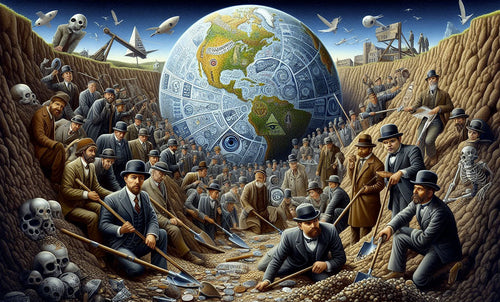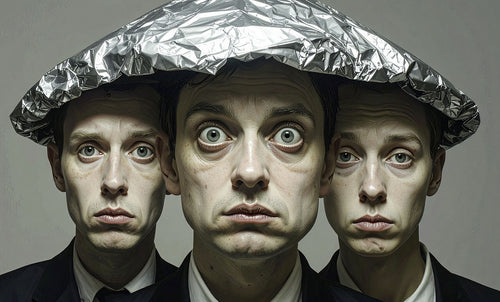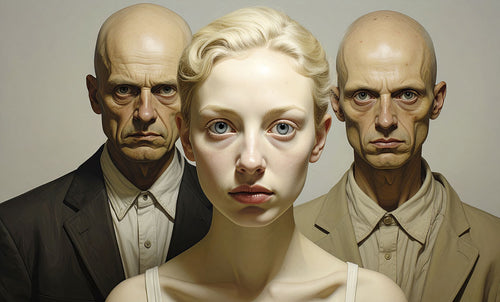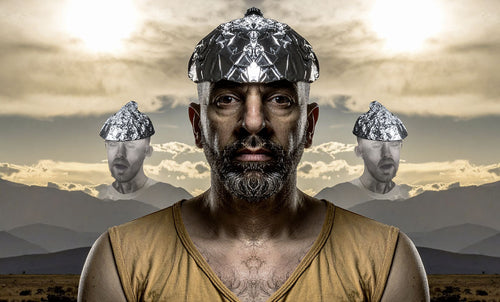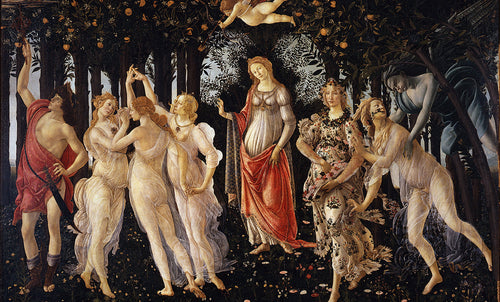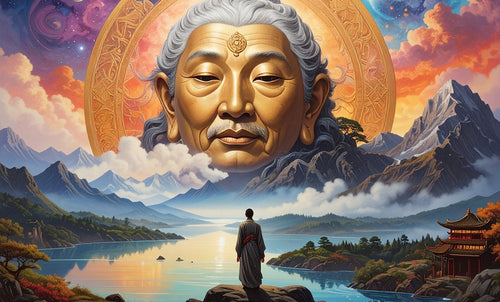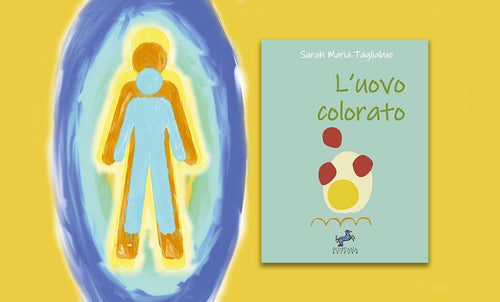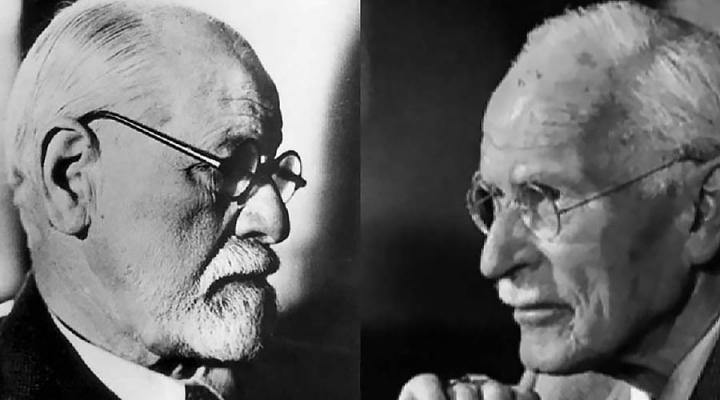
The hidden Minotaur and The Quest for Meta-Values in the Coming Millennia
Leonardo AnfolsiInterview with Luca Valerio Fabj - Psychopathologist
LA - I want to start with the name of the magazine that you direct “The Minotaur”; I know that you’ve inherited the name of the magazine, but I also know that it is a crucial symbol in Jungian studies. Can you say something about it?
LVF - The archetype of the minotaur is linked to another important archetype that is the labyrinth. The idea of Theseus who falls into the labyrinth to kill the monster and that, thanks to Ariadne’s thread, finds the path to get out of the labyrinth is considered, first of all, a very important symbol in the Freudian psychology as well. The Minotaur is a monster born of the lust of Pasiphae, making it the symbol of all those impulses that are within us, and that swarm around uncontrolled, precisely because they are not recognized. The minotaur describes our entire instinctual life that is hidden within in guilty, a secret life in which we are forced to “sacrifice virgins” - as the mythological story says - just because we are continuously forced to be what we are not, thus sacrificing our innocence, and being forced instead to be always-beautiful, always-brilliant in that most inconspicuous manner, continuously corresponding to the average social expectations. The central theme is, in my view, that even if the minotaur is killed, because there could be the possibility of a real battle with it/him, the first thing you have to do is to recognize it/him; from this you can start the real descent into the underworld and so the battle, that is the descent into yourself and the battle within. Professor Ranzato, founder of this magazine, explained the symbol of the Minotaur as the representation of the bestial force of the unconscious, unseen by the unaware man. But, in my humble opinion, the theme of the Minotaur can lose some of its meanings when it is made to be too central, acquiring a moralizing flavor. Indeed in the “depth psychology” there is somewhat of an idea of a sterilization of the unconscious, an elimination of the conflict, while the Jungian point of view sees integration with our instinctual sphere and, above all, recognizes another symbol through the symbols of the minotaur and labyrinth - recognized as central to the concept that Jung Alchemy - which is, as I said, the integration with the female, the Conjunctio oppositorum, since the victory of this inner monster passes through a true union of opposites by which Theseus got out of the labyrinth with Ariadne, not without her, and above all thanks to her. I want to suggest that it is thanks to this union with how these opposites can climb out from the underworld.

LA - In this regard - about the necessary descent into hell that we mentioned - it happens, as I can read here: “to free us from the labyrinth built by reason in our unconscious...”
LVF - Yes, here the central principle of analytical psychology is defined: that the unconscious itself is not ill - on the contrary to the common idea and Freud’s opinion - but here the manifested problem, the real disease, is truly the inability of consciousness to communicate with the unconscious, the intrusiveness of our Apollonian part to the Dionysian one, and then the building of the labyrinth from which we can no longer go out if the “I” pretends to be the master of the whole experience, the psyche thus is going to be confused relegating the unconscious. By the way, this same opinion was Freud’s as well, mind you.
LA - We can therefore say that the Freudian view, tuned to a materialistic focus, contemplates the realization of individuality through an “evolution” as its highest task. Obviously this has nothing to do with a spiritual vision and / or initiation, if only for the idea that there is somehow an achievement in terms of human-time, therefore a core that can be defined a priori, “I”, to conquer or to defend.
LVF - Correct. There is even a more famous motto of Freud about it, which nips any fantasy: “where there was the Id, must be the Ego.” We are not to search for individuality, let’s say a permanent “I”, but an identification, we seek it in the etymological “identifying sense” understanding this Ego as an undivided entity, which brings us immediately in our quest of the Self, which asks for the death of the Ego. However, we could also say that if the Id was not lost in his labyrinth could not become Ego, so it would never start the quest and then realize what the Self really is. Our vision is a positive outlook towards the unconscious, this is the real division of the difference between Jung and Freud, while it is often said that Freud does not believe in a collective unconscious but only in a personal unconscious, and other such nonsense on the difference between Freud and Jung. No, anyone can detect it by reading the well-argued texts of these two well-known historical figures and see that the only, real difference lies in this new Jungian concept, that the unconscious is healthy.

It is only our mental-fake-pattern that fails to understand our evolutionary impulses towards another human type, and so it triggers the fall into a sick state of mind.

LA - I can see that in the magazine, The Minotaur, among the columnists, there are influential names at the international level in the field of Psichology, Anthropology, Epystemology, while I see very few Italian names: why?
LVF - Because unfortunately analytical psychology becomes a very fragmented movement when they trigger political decisions - that I don’t share - to create a structure that I would describe as dictatorial, according to whom there is the C.G. Jung Institute in Zurich, intended as a Company of International Analytical Psychology that grants a license that recognizes a national office, say the Italian one, which in turn, as if it was a patenting office, grants the license to certain organizations which then, on their own, grant those patents to individuals who should be worthy for any reason. On the contrary, the magazine, The Minotaur, is born from the GAPA, the Independent Group of Analytical Psychology, a group of Jungians who wants to be outside these power games, and is connected to the legacy of Carl Alfred Meier, as Francesco Ranzato was his pupil. Meier was the first president of the C.G. Jung Institute in Zürich. We add here that, after a series of clashes with Von Franz about purely human affairs - or “all too human” as Nietzsche would say - irreconcilable rifts have been created, and therefore we have no unity that would be desirable and necessary to the individual freedom of analysts within the world of analytical psychology.

It is absurd that someone wants to self-invest as a repository of Truth, as Jung himself never wanted to be the repository of any truth. Apparently some of his descendants would hold that typical view as a kind of vicars of power, a concept dear to Freud, if anything, that would result, however incomprehensible, from the point of view of a Jungian approach to human condition and history, that addresses the collective unconscious in all its vastness... In which case it would sounds like trying to put all the water of the ocean into a glass.
LA - I have an interesting observation that I heard from somebody who knew C.G. Jung personally during his Eranos symposiums. He recounted how Jung, whom he met at length, was a learned person, deep, contemplative but also fragile, and with a strong, indispensable sense of authority.
LVF - Yes, you have captured, in one phrase, my opinion about Jung’s problem, who despite his incomparable genius has never been able to break with his father, the bourgeois Swiss Calvinists society of his days. At that time, religion - all religions - invaded every living space of culture; and in this context, Jung’s father was a Calvinist pastor, with all that follows in its intellectual and psychological heritage.
The publication of the red book breaks with this middle-class context and level, abruptly confessed a deep spiritual search for Jung that was very over the top. Although frankly, for the above reason, I cannot understand why a book so unsettling was published; I realize, of course, that times had changed, but I imagine an economic necessity of the heirs as well, since as a publishing project it is indeed formidable and without fail. It is straight from this book that will take the common but unfounded opinion that sees Jung as a shaman.
The unhappy relation that Jung had with his father was certainly ambivalent because it made possible for Jung to survive in the Swiss Calvinist middle-class, protected from the pretenses and pressures of the environment, thus allowing him the power to even speak freely at Eranos; this is not to say that Jung had two faces, but certainly he had in his experience a strong inner clutch as well as an external conflict.
Jung, who was not only an intellectual but also a sincere practitioner - and much deeper than usually claimed - experienced his initiatory passages since, as we know and as he himself admits, certainly practiced deep, spiritual methods, but the fact of appearing as a respected analyst for the Swiss Calvinist societies would create not only a continuous outer clutch, in his relational behavior - more or less despotic or fragile - but also the inner. This transpires without difficulty from his own writings, scholastic but sincere.
LA - Then when Jung avoided, even blatantly, to speak or write about certain subjects, this was not only for Jung a professional mask, but his inner torment.
LVF - Yes, of course. In his autobiography he emphasizes precisely this, that in the game between the two personalities, the n° 1 was the external one, and the n° 2 -his deep unconscious personality - was nothing less than Nietzsche’s Zarathustra! Bright, mocking and even promethean, then visionary or titanic, who knows? So this constant struggle between Christ and Antichrist within himself - antichrist of course in the Nietzschean sense - pours out into this wonderful autobiographical work of thousands of pages where a total choice of the field never emerges; and we must consider that Misterium Conjunctionis is a book written shortly before he died. Again and again, Jung, has wanted to confirm his authority claiming to be the everlasting deus ex machina, and this is reconfirmed in one of his most brilliant writings that concerned the archetypal symbolism of the psyche, that is his preface to History of the Origins of Consciousness, written by his disciple Erich Neumann[2] where Jung sincerely asserts “I should have written this book myself.” Then he discharged Neumann because he felt his authority was threatened; you see, it was too difficult for Jung to manage such a gifted student!

LA - Jung had contact, on several occasions, with three Japanese philosophers related to Zen: Daisetz T. Suzuki, Shin’ichi Hisamatsu and Kitaro Nishida. He had discussions with them and came to the conclusion that the self-revealed realization of the collective unconscious corresponded to Satori or Illumination in Zen Buddhism. When Suzuki, if I remember well, asked Jung to put his pen to paper on his well-argued and confirmed intuition about Satori... Jung refused!
LVF - Indeed! He had this idea that the central symbol in the West for the Self could not be other than Christ! The idea was over and over again expressed, even states that - I quote from memory - Yoga is the greatest mystic and philosophical gift that mankind has received from the East, but that the West should not practice because it goes against his archetypal symbols. Of course, we must not forget that Jung, before being a great exponent of the twentieth century thought he was a child of his time, and that like all men of his time had a vision that we would frankly consider racist now; but it was, at that time, a common opinion that the races were different, not only for skin or culture, but also for the psyche and also for spirituality. So then the concept of emptiness in Buddhism seemed suspicious as if it were the affirmation of the inexistence of God, while we know that the Buddhist view is much more similar to a negative theology such as that of St. John of the Cross and Marsilio Ficino, and that is also similar to the concept of Dotta Ignorantia of Nicholas of Cusa. So, you see, nothing is so hidden or distant...

LA - Absolutely right! As a Buddhist Teacher I can confirm your every word.
LVF - So I can easily believe that when he thought about Satori, as he did in his comparative studies, it was all right, but then if he had to admit some spiritual value for the West, for his part here it is... A clear denial.
LA - We have to consider that the Buddhist emptiness also frightened Schopenhauer, among others...
LVF - Yes, but I find that at least Schopenhauer was more consistent and attentive. However, Jung’s greatness must also be recognized in the efforts of his studies on the Nag Hammadi scrolls - so important for every Christian of all persuasions - the translations that many were sponsored by the Institute Carl Gustav Jung, and that despite the fact that, at that time, we knew very little of Gnostic Christians, Jung had already picked up a lot about Ophidian Gnosticism. Those studies were started, thanks to him, and in this sense, it is true that he was an highly-educated pioneer gifted with intuition. Jung, however, never had the courage to say certain things in the end, what you tell us about Satori gives me further confirmation of this; which it was always due, in my humble opinion, to his internal conflict. Although always speaking ill of his father, he continued to accuse the father of the “loss of faith”: noting here that he is not talking about the Christian religion, in fact...
LA - Yes. Sure...
LVF - ...Here he is talking of “father” in the psychoanalytic sense. Looking at it from another direction, it is true that escaping from our own anthropological context and encountering an unknown system, the psyche can remain upset and flooded with new concepts as well as a new visionary approach; However it does not need to disturb the East, because this upheaval can be already determined, for example, by the images of the mnemonic technique of Giordano Bruno or just some western alchemical symbolism; so in Jung’s fear there is something that makes sense but, it is one thing to say that certain practices are to be avoided for someone with overt mental health problems, and another thing to write that at the heart of the lotus of a given Tibetan mandalic display there should be Christ and not Buddha. It is from these confusing statements that one simple thing becomes evident: the Christ of which he speaks is not the historical or mystical Christ, but the Father, with which constantly Jung comes to blows with but who also wants to coax and, nonetheless, continue to fear. One thing that we must admit and understand is that these founding fathers of psychoanalysis who have taught us so much, in fact, were never in turn psychoanalyzed by anyone...
LA - They were alone and broke chains... If we just think how, not so long ago, those who suffered from even mere psychological problems were treated... And what about racism towards other cultures...
LVF - Exactly. In my humble opinion - for those who follow the way of psychoanalysis for self-knowledge - a recantation towards mass religions is probably required to proceed with a personal research, because of the inevitable confusion of messages and content that can happen between the necessary mass-control that belongs to the mass-religions institutions and the inner psychological quest. My personal opinion is that if you want to be, you can only be a Christian in a gnostic way, that means inside an experience-knowledge, oriented and inclusive quest. Calvinism or Catholicism are just other paths centered on other issues. So, comforted by those Jung’s successors that we cited already, I feel free to strongly affirm a further step that goes beyond the cultural boundaries of the Jung’s times.
LA - I, myself, have inquired about this same theme. I asked Gisela Binda, the director/ manager of Eranos - whom I immediately recognized as a profound person, conscious and an expert in humanity and with sound studies on Jung, whom she met in person. The topic was... when we consider the fragility and fear that Jung often confessed about the unconscious contents that he was exploring, I wonder if... “Is it not that Jung missed the practice of Meditation?” By Meditation, I mean to collapse in our own presence and consciousness, letting us find our own space, our own self-revelation, our silence/eternity. It is thanks to this that we begin to feel, and that we actually are, spiritually free and invincible. Binda, who explored the meditation experience, said that this was the same impression she had about C.G. Jung’s fragility.
LVF - Of course. That’s the point. You see the case of Neumann; we already said that he has been, to Jung, the dearest and most gifted disciple and that he, nonetheless, had been discharged in the last period of his life when Neumann was working on Satori as a Self-realization of the Collective Unconscious. There you can clearly see what I claim about the failure of the material-institutional legacy of C.G. Jung.

LVF - Jung invented an unconscious exploration technique called “active imagination” that he believed he had taken directly from alchemy. In this technique you have to keep your unconscious sphere in a suspended state of spontaneity... While Meditation, according to the wrong idea that Jung had about it, should be an attempt to harness the unconscious, which clearly demonstrates the shortcomings in his understanding. During one of my workshops on Kundalini Yoga according to Jung’s view, I showed the missing pieces in the Jungian concept of Yoga, Meditation and Kundalini; for example Jung stated that Indians were immersed in the unconscious while we were immersed in consciousness, a concept that depended on the time in which this man had lived and that added a lot to that expanded/Ego - as it was to Freud - and certain racist conceptions as we have already said, that remained common for a long time even among the most educated people of Europe. A fundamental error that comes from the esoteric world is to conceive Jung as a precursor, as a prophet, when instead he was a human being with overt weaknesses that belonged to one body in his time, and that in addition to being a psychiatrist who took care of these esoteric aspects as part of the human experience because they are useful to return a verticality to the psyche, which cannot be just traumas, complex by removal or transfer, and not just relying on sexuality as Freud thought. So, fatally due to dreams or inner experiences of rupture, it happens that we accede to something else, deeper and more real; these are all those experiences described in the western esotericism and in that deepest mythology that the culture and the official religion have wanted to hide as the Minotaur was hidden; Jung then had the great merit of bringing these sapiential realities to surface giving them dignity, and even giving them a scientific rigor. But Jung was neither a prophet nor a mystic.
LA - I want to ask you about the reconstruction of an Eastern alchemical-spiritual practice called chöd, that a dear friend and sister, Tsultrim Allione, ingenuously elaborated in a Jungian key. It is, to briefly describe it, to remain loosely in a meditative state, and remain in a open perceptive sphere permitting the crop of some softening force around or in us; then you go on dialoguing with such force, which eventually asks what are the true, positive and constructive functions. I know that often Jung underwent the roar of these unconscious manifestations drawing instructive visionary and trasmutative experiences that, however, feared... as forces destabilizing the order and balance of the psyche...
LVF - Yes. These are called Techniques for Dialogue with the Unconscious and are practiced within the experience of the Active Imagination. But I want to make a very important distinction: there is an individuation process that has the function to create an individual’s spiritual growth or - better - core-experience, but before that, we must always consider the central aspect of psychotherapy in which one determines an individual’s care where a neurotic individual could experience such extreme forms and then become a psychotic individual. We must therefore understand this aspect, namely that these techniques can be an inherent danger for unbalanced people. I mean that if I teach these Active Imagination Techniques to the wrong people, they can activate neurotic fantasies in some of my patients, and I would risk rapidly to create schizoid symptoms in them.
Nonetheless, a developed person with such techniques will have outstanding success. So, you see, the fortune of real analytical psychology - taken in its core-meaning and without compromises - is that of not wanting to be orthodox, not demanding an alleged opinion of what should be reachable for a/any man, and therefore not to fear those who are the unexpected variables. Much less, analytical psychology puts limits as West and East, or ennobles and make itself credible scaring people about it from the point of view of one or the other possible experiences of the spirit, which - we have seen - was one of Jung’s mistakes. I hope with all my heart that we have taken the main road to the discovery of our Western tradition, which also can be offered to the centrality of Christ, which is yet the Gnostic Christ, living in everyone and not bent to the needs of a secular ecclesia.

LVF - Well, Nietzsche’s philosophy regards, in toto, our existence, not only the Dionysian aspect. I have - first of all - to say that Nietzsche has been greatly misunderstood by most superficial readers that are always hunting for somebody ideologically to fear and hate because of their opinionated and worried minds; so they confound Nietzsche’s sense of humor, his enjoyment in offending the borgueouse mentality of his time, with his deep penetration of the human condition. I add that, as said by the excellent Loris Solmi, presenting my book, the descendants of a thought tend to become more royalist than the king himself; by this I mean that Jung wrote the biggest commentaries that exists on Nietzsche’s Zarathustra, Four volumes of over 600 pages. My personal view is that, instead of commenting on such a long text, we can pratically develop all the aspects of a Nietzschean approach - I mean as a functioning method - so that you can create an analytical psychology that has a Nietzschean base. Which means that... The identification can only go through the transvaluation of all values.
LA- In the sense that the values have to become “meta-values”?

LA - ...Where previously...?
LVF - Where previously... There was a formless chaos. That’s the point. The novelty of Nietzsche is to consider the disease as a possibility to give shape to this chaos: “One must still have chaos in oneself to be able to give birth to a dancing star.” Nietzsche heartily says, and heaven knows how much he dealt with it. And this is not just to say that mental illness is the result of repression, of an encirclement by the prevailing culture; we know this already but it is not enough, rather that mental illness is an evolutionary process aborted. To give birth to chaos and then to reorder it, thanks to the potential of which is already provided, becomes, I think, inevitable.
LA - In one of your presentations I see that you affirm the following: “In his Psychoanalysis Jungian studies found a psychologically convincing explanation of the therapeutic efficacy of transference that had already been intuited by the ancient alchemists.” I’d like to know your point of view on Alchemy and the work of the alchemists. You can write one or more articles for NitroGeno to make your search results known to us? Thank you.
LVF - Definitly, It will be my pleasure. Thanks to you.
Note:
[1] Three version of the apollinean archetype: Greek-Roman Apollo, Buddha from Gandhara (greek-influented) and the Etruscan Aplu (Apollo), smiling but much more close to the Dyonisian archetype.
[2] Eric Neumann (1905 - 1960) a world renowned analytic psychologist and Jewish refugee from Nazi Germany who lived first in Zurich and then settled in Palestine. Of particular interest is Neumann’s dialogue with Jung concerning the archetypes of Jewish culture and of the Great Mother.
[3] Luca Valerio Fabj (on the left) psychopathologist and director of the School of Specialization in analytic Psychology Aion, here with Sebastiano Fusco, one of the most accredited experts in the history of western magic.
Leonardo Anfolsi



